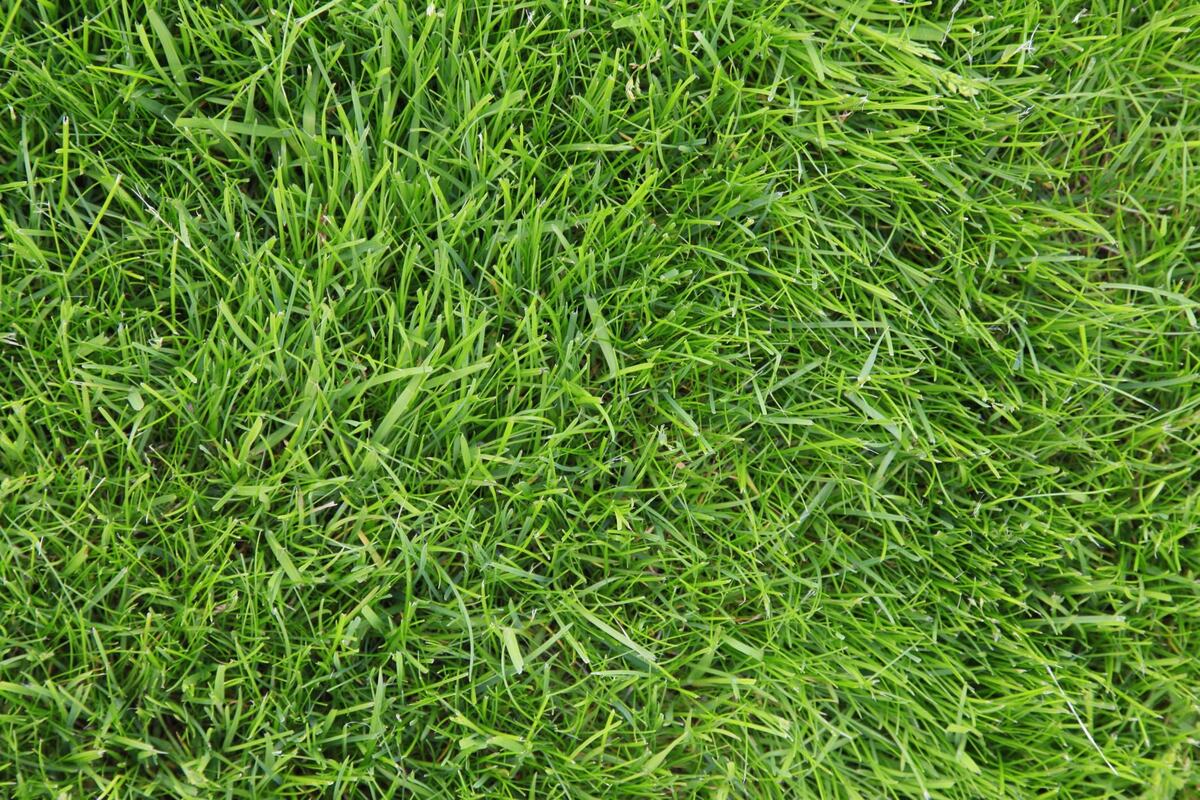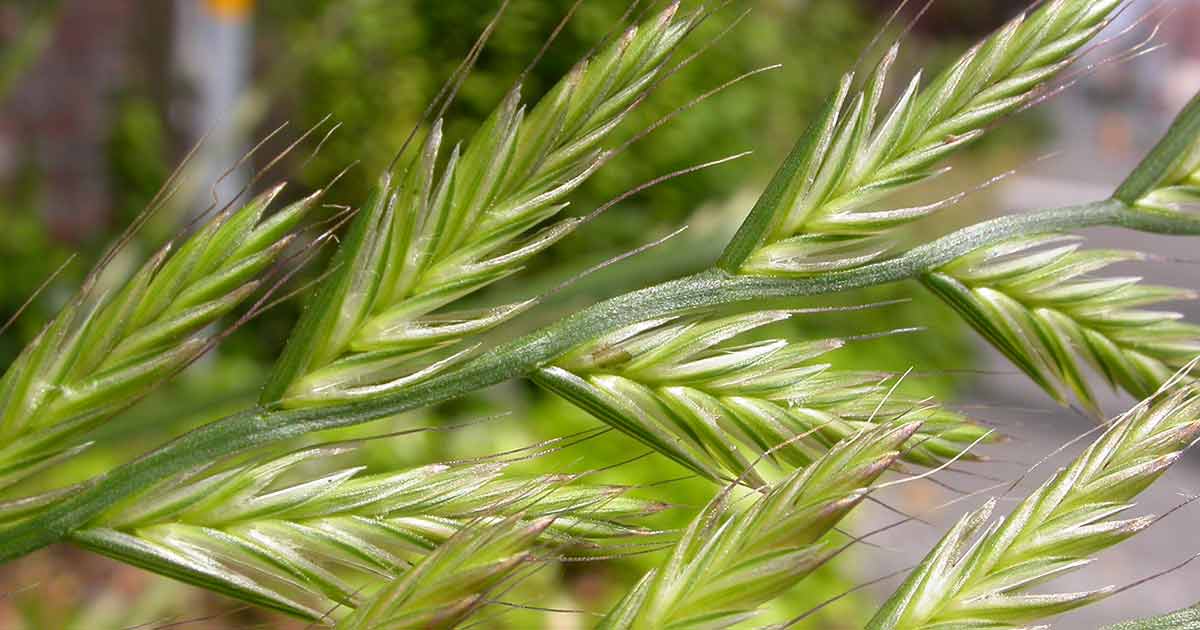Home>Garden Essentials>What Are Types Of Seeds


Garden Essentials
What Are Types Of Seeds
Modified: March 16, 2024
Discover the different types of garden seeds and learn how to choose the best ones for your gardening needs. Enhance your gardening skills and maximize your harvest with the right garden seeds.
(Many of the links in this article redirect to a specific reviewed product. Your purchase of these products through affiliate links helps to generate commission for Storables.com, at no extra cost. Learn more)
Introduction
When it comes to gardening, selecting the right seeds is crucial. Whether you’re growing fruits, vegetables, or flowers, choosing the appropriate seed type can greatly affect the success of your garden. With so many options available, it’s important to understand the different types of seeds and their characteristics.
In this article, we will explore the various types of seeds commonly used in gardening. By understanding the distinctions between them, you’ll be equipped with the knowledge to make informed decisions and best suit your gardening needs.
From open-pollinated to genetically modified seeds, each type has its own unique qualities. By delving into this topic, we hope to provide you with a comprehensive understanding of the seeds available in the market.
So, let’s dive in and explore the world of seeds!
Key Takeaways:
- Choose the right seeds for your garden based on your goals and values. Open-pollinated and heirloom seeds offer genetic diversity, while hybrid and GMO seeds provide specific traits. Consider your gardening approach and preferences when selecting seeds.
- The world of seeds offers diverse options, each with its own story and significance. Experiment with different types of seeds to preserve traditional plant varieties and contribute to biodiversity. Let your garden flourish with the power of the perfect seeds!
Read more: What Type Of Bird Loves Sunflower Seeds
Open-Pollinated Seeds
Open-pollinated seeds are the traditional seeds that have been used for generations. These seeds are naturally pollinated by wind, insects, or other natural means. The key characteristic of open-pollinated seeds is their genetic stability. This means that if you save the seeds from a plant grown from open-pollinated seeds, the resulting offspring will have the same traits as the parent plant.
One of the advantages of open-pollinated seeds is their adaptability. They have been naturally selected and adapted to various growing conditions over time. This makes them well-suited for specific climates or regions. Additionally, open-pollinated seeds tend to be more genetically diverse, which can result in healthier and more vibrant plants.
For gardeners who want to preserve heirloom varieties or maintain a sustainable seed-saving practice, open-pollinated seeds are an excellent choice. These seeds can be saved from one season to the next, preserving the genetic heritage of a particular plant or variety.
Open-pollinated seeds also offer the opportunity for seed saving and sharing within gardening communities. Gardeners can exchange open-pollinated seeds, allowing for a diverse range of plants to be cultivated.
However, it’s important to note that open-pollinated seeds may not always produce uniform crops. There can be slight variations in plant characteristics, such as size, color, or taste. This diversity, though, is often seen as one of the charming aspects of open-pollinated plants.
Overall, open-pollinated seeds are a popular choice for gardeners who value genetic diversity, adaptability, and the ability to save and share seeds.
Heirloom Seeds
Heirloom seeds are a subset of open-pollinated seeds that hold special value due to their history and heritage. These seeds have been passed down through generations, often with a story behind them. They are typically associated with a specific region or cultural context.
Heirloom seeds are known for their unique characteristics, such as distinct flavors, colors, or textures. They offer a connection to the past, allowing gardeners to preserve and propagate rare or endangered plant varieties.
One of the key features of heirloom seeds is their genetic stability. Like other open-pollinated seeds, heirlooms produce offspring with traits similar to their parent plants. This allows gardeners to save and replant seeds from year to year while maintaining the desired qualities of the heirloom variety.
Growing heirloom plants also contributes to biodiversity. Many heirloom varieties have been neglected in favor of hybrid or genetically modified seeds. By cultivating heirloom seeds, gardeners play a vital role in preserving these unique plant varieties and ensuring their continued existence.
Moreover, from a culinary perspective, heirloom seeds offer an unparalleled taste experience. They often possess exceptional flavor profiles and can introduce gardeners to a wide range of flavors and textures not typically found in commercial produce.
It’s worth noting that while heirloom seeds have gained popularity in recent years, they are not always as readily available as other seed types. However, numerous organizations and seed banks focus on preserving and distributing heirloom seeds to ensure their accessibility.
By choosing heirloom seeds, gardeners not only enrich their gardens with a piece of history but also contribute to the preservation of traditional agricultural practices and the wider diversity of our food system.
Hybrid Seeds
Hybrid seeds are created by intentionally cross-pollinating two different varieties or species of plants to create offspring with specific desired traits. This controlled breeding process aims to combine the best characteristics of each parent plant, such as disease resistance, higher yields, or improved tolerance to environmental factors.
One of the main advantages of hybrid seeds is their uniformity. The offspring from hybrid seeds tend to exhibit consistent traits, resulting in uniform plant growth, size, and maturity. This can be advantageous for commercial growers who require standardized crops for easier harvesting, packaging, and marketing.
Hybrid seeds are meticulously bred to exhibit certain desired traits, which may include better color, taste, shelf life, or increased productivity. For example, a hybrid tomato variety may have improved disease resistance and larger fruit size, making it more appealing to growers and consumers alike.
Another benefit of hybrid seeds is their improved vigor and resilience. The combination of genetic traits can enhance the plant’s ability to withstand adverse conditions, pests, or diseases. This increased hardiness can result in higher overall crop yields and reduced reliance on pesticides or other interventions.
However, hybrid seeds have certain limitations. Unlike open-pollinated or heirloom seeds, hybrid seeds cannot be saved and replanted with the expectation of producing offspring with the same desired traits. The second generation of plants grown from saved hybrid seeds may exhibit unpredictable characteristics, making it necessary to purchase new hybrid seeds each year.
Despite this limitation, hybrid seeds continue to be widely used, particularly in large-scale agriculture, where consistency, productivity, and disease resistance are key factors. They offer growers predictable results and can contribute to increased food production and quality.
It’s important to note that hybrid seeds are not the same as genetically modified (GM) seeds. Hybrids are created through natural breeding methods, while GM seeds involve the introduction of specific genes from unrelated species. Hybrid seeds do not pose the same concerns or controversies associated with genetically modified organisms (GMOs) in the food industry.
In summary, hybrid seeds offer distinct advantages in terms of uniformity, productivity, and resilience. They have become a popular choice for many growers, especially in commercial agriculture, but it’s crucial to understand that they do not retain the same genetic stability as open-pollinated or heirloom seeds.
Genetically Modified Seeds
Genetically Modified (GM) seeds, also known as genetically engineered seeds, have been altered through the insertion of specific genes from unrelated organisms. This process is carried out in a laboratory to create plants with desirable traits or characteristics.
The main goal of genetically modified seeds is to introduce specific genetic traits that enhance the plant’s abilities, such as resistance to pests, diseases, or herbicides, and improved tolerance to environmental conditions. These modifications are intended to improve crop yields, reduce chemical inputs, and address various agricultural challenges.
Genetically modified seeds offer several advantages. They can help combat pests and diseases that pose significant threats to crops, reducing the need for chemical pesticides. They can also enhance food security by increasing crop yields, potentially addressing global hunger and improving the economic well-being of farmers.
Furthermore, genetically modified seeds can provide environmental benefits. For instance, genetically engineered crops that require fewer herbicides or fertilizers can reduce water pollution and soil erosion. Additionally, certain GM crops are designed to be more resistant to drought or extreme temperatures, allowing them to thrive in challenging environmental conditions.
However, genetically modified seeds have been a subject of debate and controversy. Some concerns include potential long-term effects on human health and the environment, lack of transparency in labeling, and the potential for genetic contamination of non-GMO crops.
It’s worth noting that regulations and labeling requirements for genetically modified organisms (GMOs) vary between countries. In some regions, GMO labeling is mandatory, while in others, it is not required. This has led to ongoing discussions regarding consumer choice, transparency, and the potential risks and benefits associated with genetically modified seeds.
Given the complex nature of genetically modified seeds, it’s important for gardeners and consumers to stay informed and make their own informed decisions about whether or not to use or consume GMOs.
In summary, genetically modified seeds have been developed to introduce specific traits or characteristics into plants, with the aim of improving productivity, reducing chemical inputs, and addressing agricultural challenges. While they offer potential benefits, their use and acceptance are influenced by ongoing debates about their impacts on health, the environment, and consumer choice.
When learning about different types of seeds, it’s important to consider their size, shape, and how they are dispersed. This can help you identify and understand the characteristics of various seeds.
Read more: What Type Of Grass Seed To Plant In Fall
Organic Seeds
Organic seeds are seeds that have been produced and obtained from organic farming practices. These seeds are cultivated without the use of synthetic fertilizers, pesticides, herbicides, or genetically modified organisms (GMOs).
Organic farming focuses on promoting biodiversity, soil health, and ecological balance. Organic seeds are an integral part of this holistic approach, ensuring that the entire plant’s life cycle aligns with organic principles.
When it comes to gardening with organic seeds, there are several key advantages. Firstly, you can be confident that the seeds themselves are free from any synthetic chemicals. This means that the plants grown from organic seeds are less likely to contain harmful residues often associated with conventional agriculture.
Furthermore, organic seeds are typically open-pollinated or heirloom varieties, which promote genetic diversity and preserve traditional agricultural practices. By choosing organic seeds, gardeners play a vital role in supporting sustainable farming methods and maintaining biodiversity.
Organic seeds are especially important for those who are passionate about organic gardening or who aim to grow organic produce for their own consumption. Growing organic plants from organic seeds ensures that the entire process, from seed to harvest, aligns with the principles of organic agriculture.
It’s worth noting that organic seeds can be more expensive or less readily available than conventional seeds. This is because organic seed production requires adherence to strict organic regulations, including the use of organic soil amendments, pest control methods, and seed-saving practices.
When purchasing organic seeds, look for certified organic labels from reputable seed suppliers. These labels confirm that the seeds have been produced in accordance with organic standards and provide assurances of their organic integrity.
Finally, keep in mind that organic gardening goes beyond the use of organic seeds. It’s a holistic approach that involves nurturing the soil, conscientious pest management, and sustainable gardening practices. By using organic seeds, gardeners are an essential part of the larger organic movement, contributing to a healthier and more sustainable food system.
Non-GMO Seeds
Non-GMO seeds, also known as non-genetically modified seeds, are seeds that have not been genetically manipulated or engineered in a laboratory. These seeds come from plants that have been naturally bred or selected without the incorporation of genes from unrelated species.
Choosing non-GMO seeds is a way for gardeners to support and promote the cultivation of crops that have not been genetically modified. By opting for non-GMO seeds, gardeners can cultivate plants in their pure, natural form, without the introduction of foreign genes.
One of the primary reasons gardeners choose non-GMO seeds is to maintain the integrity of the plants they grow in their gardens. Non-GMO seeds allow gardeners to grow plants in a way that resembles the traditional breeding methods of the past. This can be appealing to those who value natural and traditional agricultural practices.
Furthermore, non-GMO seeds are often associated with greater transparency and consumer choice. Many individuals prefer to know what they are growing and consuming, and selecting non-GMO seeds provides them with that assurance.
It’s important to note that while non-GMO seeds are not genetically modified, they can still be produced using conventional agriculture practices. Depending on the supplier, non-GMO seeds may still be grown with the use of synthetic fertilizers, pesticides, or herbicides. Therefore, if organic cultivation is a priority, it’s essential to look for organic non-GMO seeds.
Gardeners interested in non-GMO seeds can find a wide variety of options available. Many seed companies have specifically designated non-GMO seed selections, making it easier for consumers to identify and purchase seeds that align with their preferences.
By choosing non-GMO seeds, gardeners can actively support the preservation of traditional plant varieties and the biodiversity of our food system. It’s a way to participate in sustainable and natural gardening practices while promoting consumer awareness and choice.
In summary, non-GMO seeds provide gardeners with the opportunity to grow plants without the presence of genetically modified traits. They offer a natural and traditional approach to gardening, maintaining the integrity of plant varieties and promoting transparency and consumer choice.
Conventional Seeds
Conventional seeds, also known as commercial seeds, are those commonly used in mainstream agriculture and gardening practices. These seeds encompass a wide range of plant varieties, including both open-pollinated and hybrid types.
Conventional seeds are typically produced using traditional agricultural methods, which may involve the use of synthetic fertilizers, pesticides, and herbicides. The goal is to maximize crop yields and control pests and diseases to ensure a profitable harvest.
One of the primary advantages of conventional seeds is their availability and affordability. They are widely accessible through various retailers, garden centers, and seed catalogs. This accessibility makes them a popular choice for both professional growers and home gardeners.
Conventional seeds are often bred for traits such as uniformity, productivity, and marketability. Plant characteristics like size, shape, color, or disease resistance can be prioritized to meet the demands of the agricultural industry and consumer preferences.
Additionally, conventional seeds may include hybrid varieties, which offer specific traits such as increased yields, disease resistance, or improved shelf life. These hybrid seeds have been intentionally crossbred to combine the desired traits of different parent plants.
However, it’s important to note that conventional seeds may not always align with organic or GMO-free gardening practices. They may have been produced using synthetic inputs and may not meet the criteria for those seeking a more natural or sustainable gardening approach.
For those who prioritize organic gardening or prefer non-GMO options, it’s essential to carefully review seed labels and identify suppliers that provide organic or non-GMO conventional seeds. This ensures that the seeds purchased align with specific preferences and values.
In summary, conventional seeds are widely available and commonly used in mainstream agriculture and gardening. They offer a wide range of plant varieties, including both open-pollinated and hybrid types. While they provide accessibility and affordability, it’s important to carefully consider their production methods and ensure they align with individual gardening preferences and values.
Summary
Choosing the right seeds for your garden is crucial to achieving successful results. In this article, we explored various types of seeds commonly used in gardening, including open-pollinated, heirloom, hybrid, genetically modified, organic, non-GMO, and conventional seeds. Each type has its own unique characteristics and considerations.
Open-pollinated seeds are the traditional choice, offering genetic stability, adaptability, and the opportunity for seed-saving and sharing within gardening communities. Heirloom seeds, a subset of open-pollinated seeds, provide a connection to the past and contribute to preserving rare and unique plant varieties.
Hybrid seeds are intentionally cross-pollinated to create offspring with desired traits, providing uniformity, increased productivity, and improved resilience. Genetically modified seeds have been altered through genetic engineering, introducing specific genes to enhance pest resistance, yields, or tolerance to environmental factors. They come with benefits but are subject to ongoing debate regarding their potential impacts.
Organic seeds are produced in accordance with organic farming principles, avoiding synthetic inputs and genetic modification. They support sustainability, biodiversity, and provide assurance of chemical-free produce. Non-GMO seeds, on the other hand, are not genetically modified but may still be grown using conventional agricultural practices.
Conventional seeds encompass a wide range of plant varieties and are commonly used in mainstream agriculture. They offer accessibility and affordability but may not align with specific gardening preferences, such as organic or non-GMO gardening.
In choosing seeds for your garden, consider your goals, values, and gardening practices. Whether you opt for open-pollinated, heirloom, hybrid, genetically modified, organic, non-GMO, or conventional seeds, each type has its own advantages and considerations. It’s important to research reputable seed suppliers and select seeds that align with your gardening philosophy and objectives.
By understanding the different types of seeds available and making informed decisions, you can cultivate a vibrant and successful garden that suits your preferences and contributes to a healthier and more sustainable food system.
Read more: What Type Of Seed Is Scotts E-Z Grass Patch
Conclusion
Choosing the right seeds for your garden is a fundamental aspect of gardening success. By understanding the different types of seeds available, you can make informed decisions that align with your gardening goals, values, and preferences.
Open-pollinated and heirloom seeds offer a connection to the past, promoting genetic diversity and enabling seed-saving practices. Hybrid seeds provide uniformity, increased productivity, and resilience. Genetically modified seeds introduce specific traits but come with ongoing debates and concerns.
Organic seeds enable you to cultivate plants without the use of synthetic chemicals, supporting sustainable and ecological practices. Non-GMO seeds allow you to grow crops in their natural, unaltered form without the presence of genetically modified traits.
Conventional seeds, on the other hand, are widely available and affordable but may not align with organic or non-GMO gardening practices. They can still be suitable for those who prioritize accessibility and traditional agricultural methods.
Ultimately, the choice of seeds for your garden depends on your personal preferences, values, and gardening approach. Consider the specific characteristics and benefits of each seed type and select those that best align with your goals.
Remember, the world of seeds is diverse and exciting. It offers a multitude of options, each with its own story and significance. Explore the different types of seeds, experiment with new varieties, and contribute to preserving traditional plant varieties and biodiversity.
Whether you’re a seasoned gardener or a beginner, choosing the right seeds sets the foundation for a successful and fulfilling gardening experience. Let your garden flourish with the power of the perfect seeds, and enjoy the beauty, nourishment, and joy it brings to your life.
Frequently Asked Questions about What Are Types Of Seeds
Was this page helpful?
At Storables.com, we guarantee accurate and reliable information. Our content, validated by Expert Board Contributors, is crafted following stringent Editorial Policies. We're committed to providing you with well-researched, expert-backed insights for all your informational needs.














0 thoughts on “What Are Types Of Seeds”